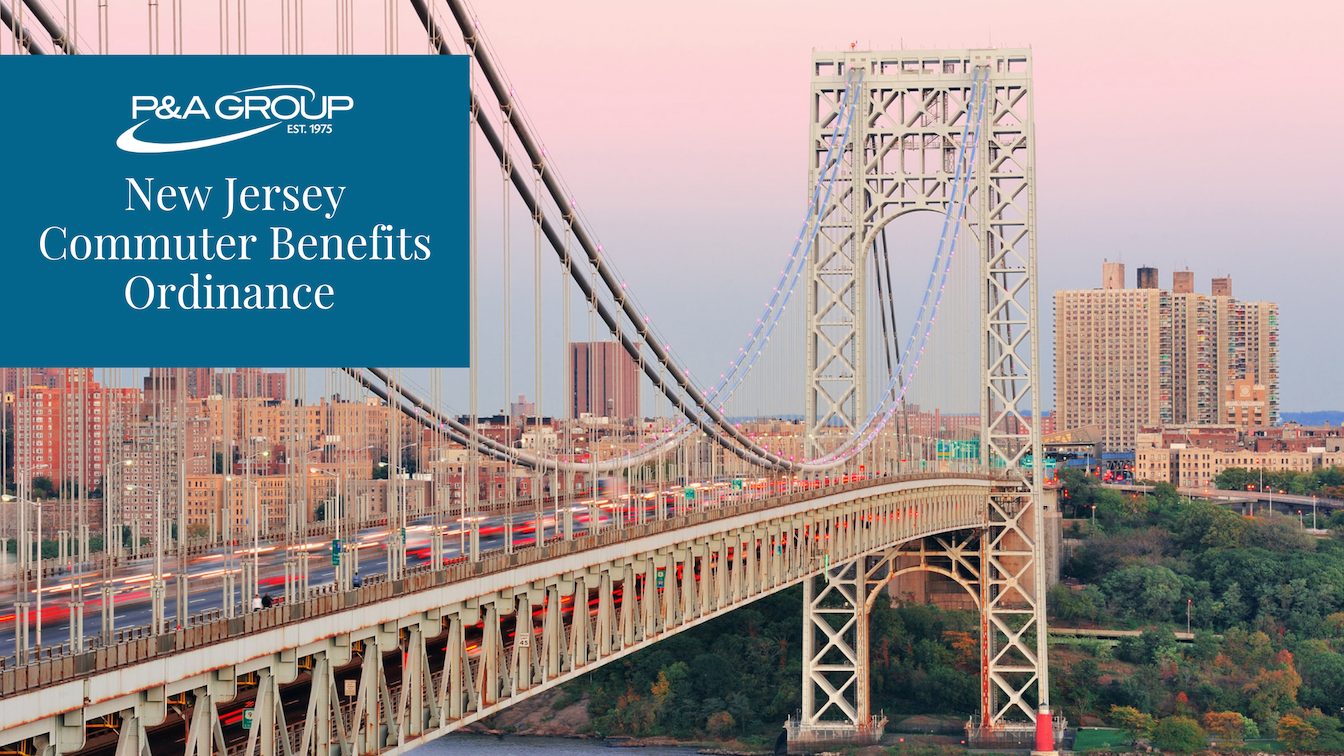
How to get to and from work can be challenging and expensive for many workers. In order to ease the financial burden of commuting, many employers offer a pre-tax commuter benefits program for employees – also known as a Section 132 plan. For New Jersey employers who don’t offer commuter benefits, that could be changing beginning in 2020.
What’s Changing
Effective March 1, 2020, New Jersey employers with more than 20 employees must offer a pre-tax commuter benefits plan to all employees who are not subject to a collective bargaining agreement. The New Jersey bill, signed by Governor Phil Murphy in 2018, is the first state to require employers to provide pre-tax commuter benefits to employees.
However, there is one exception. Federal government employees who are eligible for a transit benefit through their employer equal to or greater than a pre-tax transit fringe benefit do not need to be offered this plan.
NJ Commuter Benefits Public Awareness Campaign
Under the new ordinance, the bill requires the New Jersey Transit Corporation to implement a public awareness campaign about pre-tax commuter benefits. Workers are encouraged to learn about NJ commuter benefits and notify employers to help drive awareness.
Commuter Benefits Overview
Commuter benefits, like a pre-tax parking and transit account, provide savings for employees and employers. Employees use pre-tax dollars for eligible commuter expenses – meaning they save money on state*, federal and FICA taxes. Employers also receive matching FICA savings when employees participate in the pre-tax program.
(Note: state taxes apply for residents of New Jersey.)
Eligible Commuter Expenses
Pre-tax parking and transit accounts help offset the cost of traveling to and from work. Eligible commuter expenses include the cost of parking and public transit, such as subways, buses, commuter rail and vanpooling. The IRS indexes the contribution amounts every year, usually by November. For 2025, the maximum monthly parking contribution is $325 and the maximum monthly transit contribution is $325.
Changing Commuter Contributions
Unlike Flexible Spending Accounts, commuter plans offer more flexibility for employees. Parking and transit participants are allowed to change their contribution amounts – something FSAs don’t permit, unless you experience a qualifying event. With commuter benefits, employees are allowed to increase or decrease their contributions, like when they have a vacation and won’t need their commuter benefits. Ultimately, employers determine how often employees can change their contribution amount. For example, some employers prefer the 15th of the month as the cut off dates for changes. Changes are effective the following month.
Example
Susan enrolls in the pre-tax transit plan and puts $265 a month into her account. However, in November, she has some planned time off and won’t need her commuter benefits. Susan needs to decrease her contribution by October 15th in order for her decrease to be effective November 1.
Online Enrollment
Employers can also take advantage of P&A’s online enrollment at no additional cost. Commuter online enrollment works like FSA online enrollment. Participants simply log into their P&A account to make changes to their contribution amounts.
Setting Up a Commuter Benefits Plan
If you would like to create a commuter benefits plan at your workplace, please contact a P&A Group Benefits Consultant at (716) 852-2611 or contact us here. If you currently have a plan in place but are unhappy with your vendor and would like to change, we can help too.
